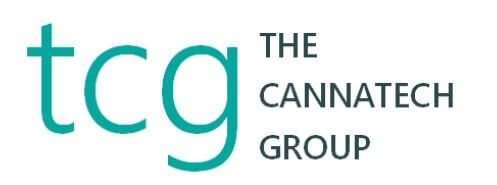The topics of legalization of cannabis has become generally popular across all demographics, political parties, and rural and urban areas across the US. Although, popularity is not enough to get a legislation and or governor to push the legalization it is helping in many states including New York, Virginia and New Mexico. With these three states passing legislation this year (bringing the total state where recreational consumption became legal to 17), and the House of Representatives passing a bill to allow banks to conduct business with Cannabis related companies in states where marijuana is legal, the legalization of marijuana support is at an all time high. Watch as Paul Seaborn and Harry chat about the current state of legalization.
Video Transcription
Harry Brelsford 0:03 Hey for 420MSP exciting times in the cannabis industry. We are back with that doctor, Dr. Paul Seaborn. How you doing today Paul?
Paul Seaborn 0:12 Doing great, Harry, nice to see you. Yeah,
Harry Brelsford 0:15 yeah. As always got New York on my mind and you wanted to contribute some other geographies. So New York has kind of got the hot hand what’s going on man?
Paul Seaborn 0:25 Yeah, I think we’ve talked for a while here that the topic of legalization has become generally popular right across all demographics, political parties, rural urban. But yet, that’s not ever quite enough to get a legislature or a governor to really push. So I guess what I’ve been seeing in New York and a couple other states is you always need the popularity and something else. And I think we had one of those something else is in New York, where this is a time where the governor was looking for some good news, maybe distracting. And so you know, this is gonna work because it is popular across most of those different cuts. And, you know, there’s undercurrent, also economic development, knowing that some neighboring state like New Jersey on board, and yeah, we don’t want to lose all the opportunity to that. So I think it just kind of shows you that formula, you need to be build up the popularity and then wait for that other thing to cut. And what’s interesting with New York is it did move really quickly from not really being on the radar to going all the way through and getting signed by the governor. So the other two states that I’m going to talk about are my home state, our current home state, Virginia, and then New Mexico. And so again, in Virginia, politically popular if you pull people, but it wasn’t really a distraction story. And it wasn’t really necessarily the economic development. But I think a growing realization that to, to think about social justice, and to think about where people are being mistreated, is think about the the dem, the negative impacts of having this as an illegal substance. So if you look at the announcement in Virginia, where they’ve moved up, the legalization date to this July 1, or July 4, I forget which one, it’s really framed around social justice that they feel like, the longer we wait, the longer we’re not treating, you know, people fairly and freely, and you know, that makes it a priority. So interestingly, with Virginia, they still have a three year time planning horizon for actually commercializing the industry, which is often that next step after legalization. Personally, I think that’s going to get moved up. I don’t see the states sitting in this Limbo state for three years. But I think politically, you do one thing at a time will legalize July 1, and then they can come back and talk about that later. And then last but not least New Mexico. So if your your viewers and listeners were watching that the governor, they’re also signed bills to legalize, and that’s moving relatively quickly. And you know, she she highlighted both of those concerns, social justice, but also economic development, and the fact that they see jobs, they see revenues and COVID is hitting state budgets pretty hard. And so, you know, it was always popular for the last little while, but it needed those other couple things to get it over the finish line. So I think that’s the formula you look into other states, you need to see either some economic motivation, social justice, motivation, or I guess, if you need some good news to distract for something else. Yeah,
Harry Brelsford 3:15 yeah, exactly. On the geography front, one of our other analysts,Kat Zommers. spoke with her recently. She’s in the New York City area. And you know, of course, there’s a lot of excitement. And she was saying, you know, and vaccinations are starting to happen, and people are starting to get outside. But she’s saying the word on the street is a lot of people are going to have rooftop parties on April 20. For 420.
Paul Seaborn 3:45 Yeah, the other thing amazing stat, I saw what your your audience might be interested in Illinois is the one state that’s really been reporting to how many out of state sales they’re making in their legal market, which only legalized a year ago, for adult use. And the most recent numbers were 30% of their adult use sales are from non Illinois customers. And if you run the math, that’s about $10 million of tax revenue a month and growing and so I don’t care what kind of Governor you are, if you see $10 million a month going to Illinois pockets, and maybe it would have been shared amongst Indiana or Ohio or Iowa or wherever, that’s going to get noticed. And that wasn’t really a thing in Colorado or some of these other places because there’s nobody popular and dance right on the border. But yeah, New York, New Jersey, Illinois. You know, they’re in the center of a lot of population, and it’s going to be hard to ignore that going forward. Not necessarily ideal for a country to have people crossing state borders and doing things that are legal in one state. I agree. That’s that’s the world we live in right now.
Harry Brelsford 4:50 Yeah, yeah, back in. I was briefly in a start up the 411on420. That was a ultimately a podcast about government affairs and compliance. And based out of Olympia, Washington basically, is we talked to, I think it was Rick Garza, the head of the Washington State and liquor cannabis control board. They showed some heat maps in Spokane, Washington was all lit up in red. And I’m like, why wonder why that is? That’s a little more conservative part of the state. Well, it was Idaho. coming across the border, hey, another question on geography, then I want to take her right ankle to a different topic. But you were there essentially, at the beginning, and I followed several years later and your your pathway? Do you think New York will come online much faster than Colorado and Washington State did because those two states had to define the paradigm right of what it is to come online? And I’m assuming we’re gonna see time compression.
Paul Seaborn 5:59 Yeah, even Washington and Colorado deferred because of the nature of those ballot initiatives. So the crafters of the language in Colorado basically locked in January 1, 14 months after the federal election. If we vote yes, it’s happening no matter what, you’ve got to get your ducks in a row and get some regulations going, or we’re just going to have the real Wild West. And so that put them on a pretty aggressive timeline, probably one of the most aggressive before since ever. Washington didn’t have that burning deadline. And so they were probably a little more careful. But yes, I think your general idea is correct, that there’s been so many states now each time, there is an opportunity to move faster. The only only counter factor is we also have higher expectations, I think as citizens as lobbyists as potential participants. So right there, people are interested in social justice and my small business car votes and testing, you know, more sophistication. So I think New Jersey is a cautionary tale that you can kind of get bogged down in all these details and getting going. So I would expect is going to be a little slower than a Colorado which was super aggressive kind of locked in and probably a little faster than Washington, which took his time and didn’t really have a deadline but with the speed that they moved the legislation through. If they keep that pace up bill leapfrog Virginia and a bunch of places very quickly.
Harry Brelsford 7:17 There we go. Alright, let’s let’s take, let’s take a turn to a new topic. during rehearsal. You were telling me about Delta eight in so what what is delta eight?
Paul Seaborn 7:27 Yeah, so we’re going to go back to the plan. And this is something that as a business Professor I try to stay educated on. But it’s really striking how little we still know about the cannabis plant, all its forms and all the things that can be extracted from it. And so one of the hot compounds coming out of this plant more recently has been this compound called Delta-8, like the number 8 THC. And just the naming alone gets very confusing because THC we think of as the intoxicating thing that makes marijuana marijuana and we think of CBD as not having THC. It’s not intoxicating. So I’m going to tell you things that are going to be confusing. First, you can extract as delta-8 THC compound from either a form of the plant from a marijuana plant, which is high in what we normally call THC, which actually Delta-9THC is kind of the it’s been the form that everyone’s focused on. You can also extract it from him. hemp by legal definition doesn’t have the Delta-9 THC in high quantity, but it has Delta-8 THC in some level. So this is already a kind of a hybrid, you kind of combat it could come from either source. And then it’s also a little bit of a hybrid in terms of what it seems to do to people. So it has some intoxicating effects, some potency, but not nearly as much as delta 9 THC, which why it was never really regulated, specifically or carved out. But yet, you know, people have found it to be appealing for some uses. So the reason I bring this up just as an example is there’s gonna be a lot of this I think over the next few years and next few decades, because all this kind of learning and research was really prevented by the non legality of the of the plant, right, the plants been around. And scientists have been learning how to study every other compound in our pharmacy and in our, in our region. But this was kind of off limits until recently, and even now we’re a little bit hamstrung. But but yet these things are being discovered and tried and things are moving forward. So I would just say it’s an example of something to look out for, like these new compounds that pop up. And then new companies that new kind of hotspots or innovation follow, particularly because if you think about what I just said, If you extracted this compound from him, there are a lot of states that do that is totally fine. They have hemp programs, they don’t have any specific provision for
Harry Brelsford 9:47 Texas
Paul Seaborn 9:48 in Texas. So that’s really where the activity has been, hey, I’m in a state where I can’t participate in the legal marijuana market, you know, delta-9 THC market, but I can extract Delta-8. I’m in in compliance with the Farm Bill, there are a few states that actually specify which type of THC Delta nine or eight, Colorado is one. So actually in Colorado, you couldn’t really work with this new compound today, because their their law is actually a little more sophisticated, a little more specific. And so they’ve said, it has to be delta-9, on the marijuana side, etc, etc. So, you know, lots of people are asking me, What is this thing? How do I understand where it’s legal, where it’s not, there’s a lot of gray area. And I would say, everything I say is kind of general. And there’s probably a lot to be figured out with a lawyer if you’re going to get into it. But I think it’s just a really interesting example where we’re still learning so much, even though it might seem like this plants been around for a long time. And you know, that can really push, you know, hotspots of activity and investment and consumer interest where you might not expect it.
Harry Brelsford 10:48 No, I concur. Three thoughts. One is one of the first pieces I did when I launched for 420, MSP and I was typing was jack in the beanstalk. And it was about the barcode, I went to a research facility in South Seattle, you know, the PHD, type p, well, present company excepted.
Paul Seaborn 11:12 real scientists
Harry Brelsford 11:14 claim to be one of those. And my, my purpose there was to kind of get a photo of the barcode on the plants, they were growing right and talk about that, but what they did, and I would have to revisit that, but somehow they got some government money to study and play around with the plant and the compound for epilepsy. And that was kind of their thing was like, how in the heck did you do that? And Paul, that was a couple years ago, so I actually kind of forget how they got the money. But the milestone wasn’t lost on me, cuz that’s very difficult to get research funding, then over on the other side of the aisle, and my technology career got a couple clients in Israel, and they’ve educated me that Israel is leading a lot of this research. And that doesn’t surprise me. You know, and, and then back to your point, you know, we don’t know what we don’t know. I mean, that’s the opportunity in my eyes, right is, I don’t know, I’ll try an analogy. You know, oil. I’m in the state of Texas, and oil used to be drilled straight down, right. And now they can do all this stuff. And I think that’s where we’re headed, right? Is into a period of innovation thoughts on that?
Paul Seaborn 12:31 No, I think you’re right, I’m part of the innovation that I see is pre legalization, the plant was generally sold in full form, or you buy flour, and that was kind of all that was available from, you know, someone in your neighborhood, that person was not a scientist who could go in and isolate certain compounds and test it and do everything else. But so. So not only did that not happen, but the skill set you needed was totally foreign to the market. It’s only because of legalization. Now we’re getting, as you say, these amazing scientists who know how to work with organic compounds, who have agricultural background, yeah, but in a lab setting that can slice and dice and try and innovate. And so you know, to me that that is something you would want to know. And so it’s legalization is making it happen. Now, what the commercial potential for all these substances is really complicated, because they may be kind of a short term, you know, popular thing until we get full legalization and the whole plant is available to every state, or maybe they end up being really important. And maybe, you know, not that many people thought that compound that doesn’t get you quit. And so, so high is going to be really popular. And we see that already. There are people who want to be part of this industry as a consumer and not for that reason. And so maybe Delta-8 is a really important finding, and it becomes a long, you know, core part of someone’s products that so yeah, again, it’s exciting stuff. Because it’s not like we’ve we’ve figured out all the mysteries in the cannabis plant just the same way that we haven’t figured out all the opportunities in the supply side and the technology side and the marketing side, right. This is still very, very early days.
Harry Brelsford 14:06 It it is it’s akin to, and I’ll start to wrap up on this that’s akin to the very early part of my technology career and you did around in technology. But Paul in the late 80s, we were defining the local area network, right. And there was this arc net and token ring and TCP IP. And we didn’t know, right, we didn’t know which way was going to go and ultimately ended up being TCP IP and the internet and so on. But it really exciting times, right that that I can get my arms around that. So any of that. Well. Thank you for your time, as always appreciate the wisdom and we’ll see you on the flip side.
Paul Seaborn 14:46 Thanks so much. Have a great week.








